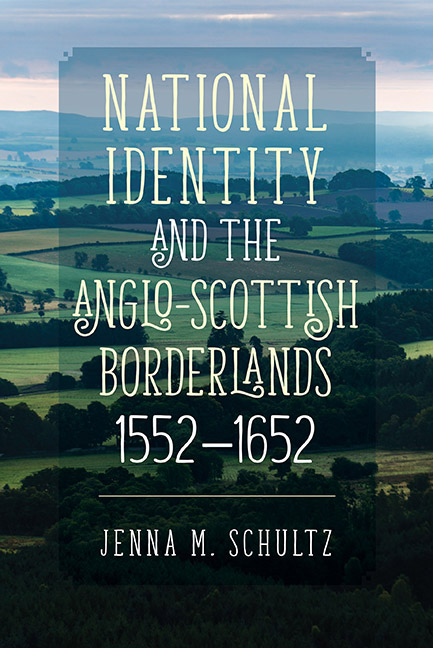Book contents
- Frontmatter
- Dedication
- Contents
- List of Illustrations
- Acknowledgements
- List of Abbreviations
- Conventions
- Chronology
- Map
- Introduction
- 1 Administration
- 2 Borderers
- 3 Border Towns and Fortifications
- 4 Moments of Crisis
- Conclusion
- Appendix 1 List of Wardens, 1552–1603
- Appendix 2 List of Lords Lieutenant
- Bibliography
- Index
- STUDIES IN EARLY MODERN CULTURAL, POLITICAL AND SOCIAL HISTORY
1 - Administration
Published online by Cambridge University Press: 06 September 2019
- Frontmatter
- Dedication
- Contents
- List of Illustrations
- Acknowledgements
- List of Abbreviations
- Conventions
- Chronology
- Map
- Introduction
- 1 Administration
- 2 Borderers
- 3 Border Towns and Fortifications
- 4 Moments of Crisis
- Conclusion
- Appendix 1 List of Wardens, 1552–1603
- Appendix 2 List of Lords Lieutenant
- Bibliography
- Index
- STUDIES IN EARLY MODERN CULTURAL, POLITICAL AND SOCIAL HISTORY
Summary
In 1636, the crown sent a list of instructions to Sir Thomas Wentworth (later earl of Strafford) on ways to improve the administration of the border region between England and Scotland. Not only was Wentworth the lord deputy for Ireland but he was also lord president of the Council of the North, an institution that had existed in some form since Richard III in 1484. The medieval king had established the body as a secondary privy council that concerned itself with local criminal and civil matters in northern England. In 1628, Charles I had appointed Wentworth to the leading northern position upon the resignation of Emanuel Scrope, first earl of Sunderland. During Wentworth's time as president, he promoted harmony between the two kingdoms in an attempt to demonstrate his support for royal policy. However, his actions spoke louder than words, as he ruthlessly enhanced the council's power and control over England's northernmost counties. His harsh methods were encouraged, and in 1636 he received instructions on ways to pacify the borderlands, that included
by all the lawfull wayes, and meanes … put their good, and effectuall endeavors, to examyne search out and represse all Treasons, petie Treasons, Murders, Rapes, Burgelaries, Robberies, and other Felonyes and the Accessaries to the same, which now are or hereafter shall arise within all, or any the North parts, aforesayd, That is to say within the counties of Yorke, Northumberland, Cumberland, and Westmerland, the Bishoprick of Durham, the citie of Yorke, and countie of the same, the towne of Kingston upon Hull, and the countie of the same, the towne of Newcastle upon Tyne and the countie of the same, and the townes of Carlisle, and Barwick and within all or any of them and shall or may apprehend all such offenders
The letter paints a picture of a region consumed by chaos, weakened by its worst offenders and powerless to do anything to prevent it without the assistance of the council. It also echoes a familiar pattern: the government's primary concern for managing the borderlands was to limit the criminal activity of the borderers who were perceived to be the main hurdle to achieving peace. This stemmed from a long-held view that the frontier was a backward, barbarous place filled with individuals of a rebellious nature.
- Type
- Chapter
- Information
- Publisher: Boydell & BrewerPrint publication year: 2019



